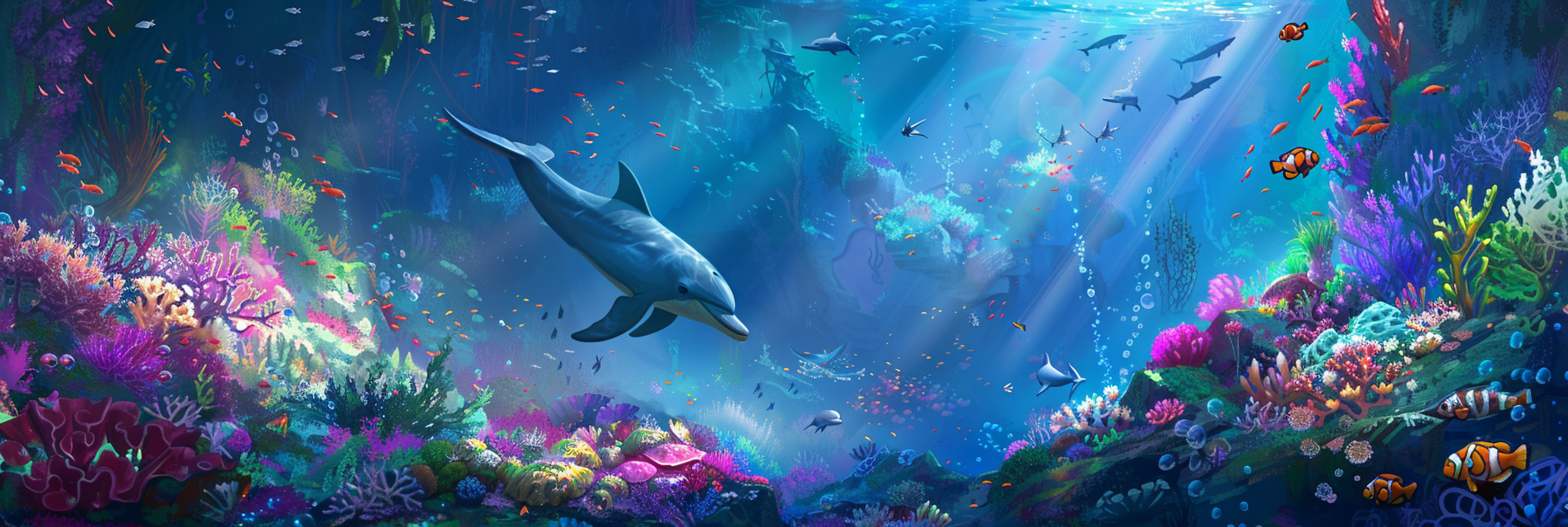
Whale Shark
The Whale Shark is the largest fish in the sea, known for its gentle nature and spotted body. It feeds on plankton through filter feeding and is found in warm ocean waters.
Scientific Name
Rhincodon typus
Behavior
Whale sharks are gentle giants, known for their filter-feeding behavior in warm waters around the globe. Despite their size, they feed primarily on plankton, small fish, and squid, swimming with their wide mouths open to collect food. They are mostly solitary animals but are known to gather in large numbers in areas with abundant food sources, such as seasonal feeding grounds.
Breeding
Whale sharks are ovoviviparous, meaning the females give birth to live young that have developed inside eggs within the mother's body. However, much about their breeding behavior remains a mystery. The only pregnant female ever examined was found carrying 300 embryos, suggesting that whale sharks can give birth to hundreds of pups at a time, but observations of breeding and birthing in the wild are extremely rare.
Characteristics
Whale sharks are the largest known species of fish, with the largest individuals measuring over 60 feet (18 meters) in length, though most are smaller. They have a broad, flat head, a wide mouth, and a distinctive pattern of white spots and stripes on a dark background, unique to each individual, much like human fingerprints. Their skin is very thick and tough, providing protection from predators.
History
Whale sharks have a long history, with evidence suggesting their existence dates back millions of years. They have been revered in many cultures for their size and majestic nature. In recent decades, whale sharks have become a popular attraction for ecotourism, drawing snorkelers and divers who wish to swim alongside these gentle giants.
Current Status
The International Union for Conservation of Nature (IUCN) lists the whale shark as Endangered. Their populations are declining due to a variety of threats, including bycatch in fishing gear, targeted hunting in some areas for their fins and meat, and collisions with boats. Conservation efforts include international agreements to protect whale sharks, the creation of marine protected areas, and regulations on fishing practices to reduce bycatch. Ecotourism also plays a role in their conservation by providing economic incentives for local communities to protect rather than exploit whale sharks.




